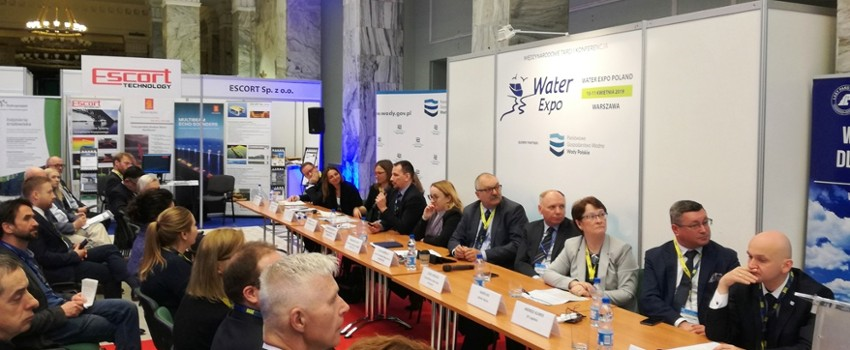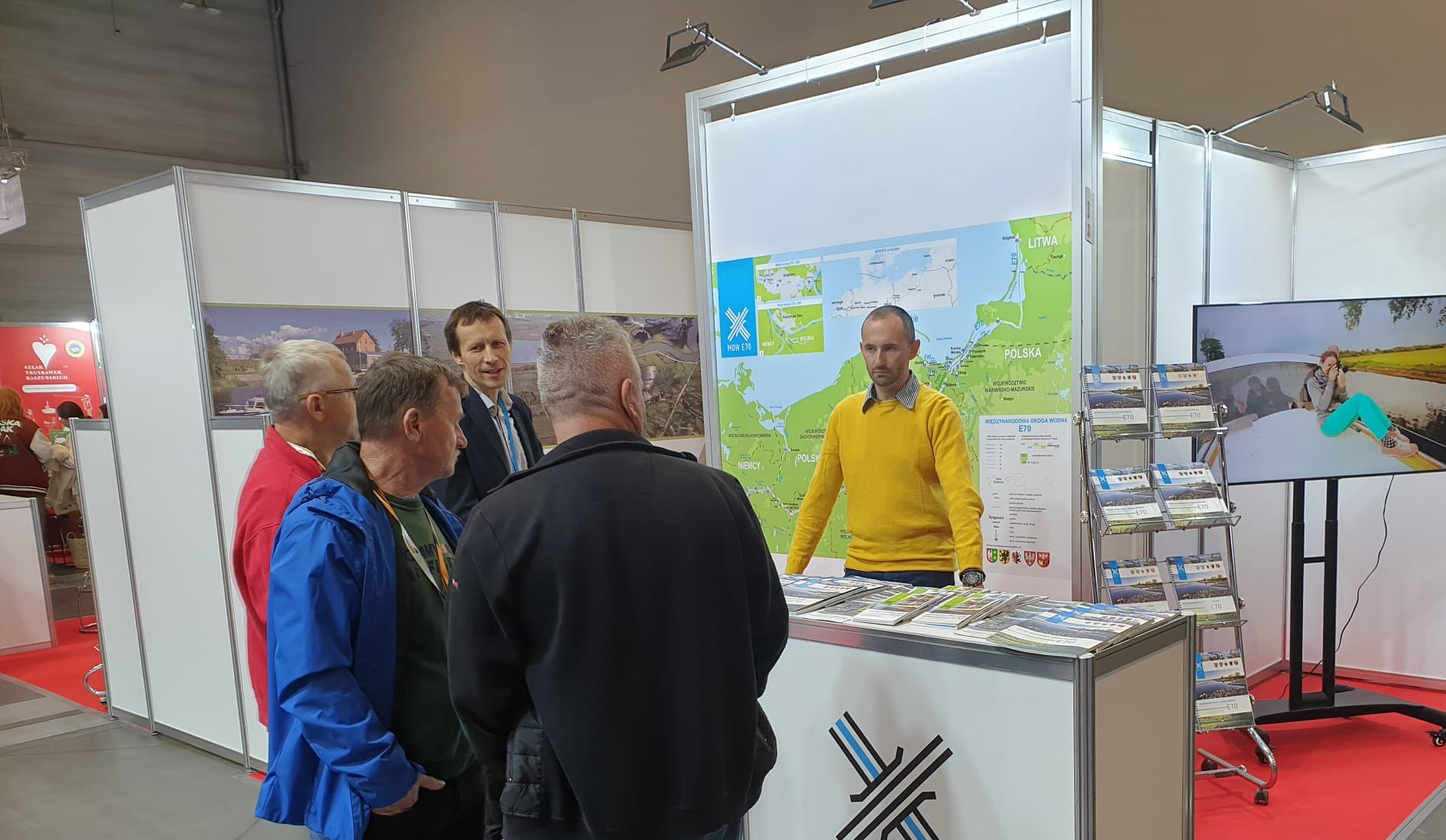This year’s edition was attended by representatives of the Ministry of Maritime Economy and Inland Navigation, the Ministry of the Environment, the Ministry of Energy, the Ministry of Infrastructure and Construction, regional and local governments, seaport authorities, the National Water Management Authority, Voivodeship Offices, Regional Water Management Authorities, Offices of Inland Navigation, as well as MPs, experts and scientists in the field of water management and inland navigation, investors, shipowners, companies specialising in water construction and town planning solutions.
During the inaugural session entitled ”Navigation, water management and rational use of water – will Poland be the largest construction site?”, the meeting participants discussed existing problems in the above-mentioned areas and possibilities of financing activities aimed at their elimination (including activities within the Infrastructure and Environment Programme 2014-2020). Good practices of the rational use of water and development of water supply systems were demonstrated, based on the example of the capital city of Warsaw and Tarnowskie Góry. The Dutch institution Netherlands Water Partnership shared its experience in the field of rational water management, planning investment processes in water management and possibilities of public investment projects being executed by the private sector. The Government presented investments concerning construction of further barrages on the Oder at Libiąż and Ścinawa and a water barrage on the Vistula in Siarzewo, being the implementation of strategic plans, i.e. the Oder and Vistula Waterway Programs. The latter investment project was also commented on by experts and representatives of Polish Waters. They discussed details related to planning, financing and implementation of the above-mentioned project. The Siarzewo barrage is designed to ensure comprehensive flood protection on the Vistula section from Włocławek to its mouth at the Gulf of Gdańsk. It is intended to improve flood protection and alleviate effects of drought. It will also enable inland navigation and the development of tourism. The investment plans also foresee construction of a hydroelectric power station on the barrage.
During the session entitled “Are Polish local governments open to rivers?”, the projects of regional and local governments were presented. The Dolnośląskie Voivodeship demonstrated projects related to restoring transport functions on the Oder in a manner harmonized with flood protection investments carried out on the river and its tributaries. The Kujawsko-Pomorskie Voivodeship presented the results of cross-regional cooperation for IWWs E70 and E40, support for the construction of the barrage in Siarzewo, and a project for opening a multimodal port in Bydgoszcz-Solec Kujawski. The authorities of Kędzierzyn-Koźle showed how its neglected inland port, which in the 1970’s was still Europe’s second port of this type in terms of transhipment volume, is coming back to life. Next, the Mayor of Nowy Dwór Mazowiecki highlighted current effects of the integrated plan for revitalisation of cultural heritage within the pilot area of the RESTUARA Project.
At the session entitled “Inland navigation market in Poland – the current state and outlook”, OT Logistics S.A., the only Polish carrier that in 2018 launched regular shipments of coal on the Oder to Wrocław, shared its experiences. According to Mr Andrzej Klimek, vice president of OT Logistics S.A., further consistent implementation of the government program to restore the Oder waterway is needed. At present, the river allows for transport for 30 to 45 days a year. However, in order to ensure the project’s profitability, navigation on the Oder should be possible for at least 270 days a year. A similar situation is present on other Polish waterways. Apart from navigation between Gliwice and Wrocław, the company also operates the seaport in Szczecin, mainly in relation to the German market, and handles shipping of goods on the Vistula Lagoon (Elbląg – Kaliningrad).
Incidentally, speeches at the conference were disrupted by representatives of the Save the Rivers Coalition, who protested against plans to convert Polish rivers into navigable waterways.




